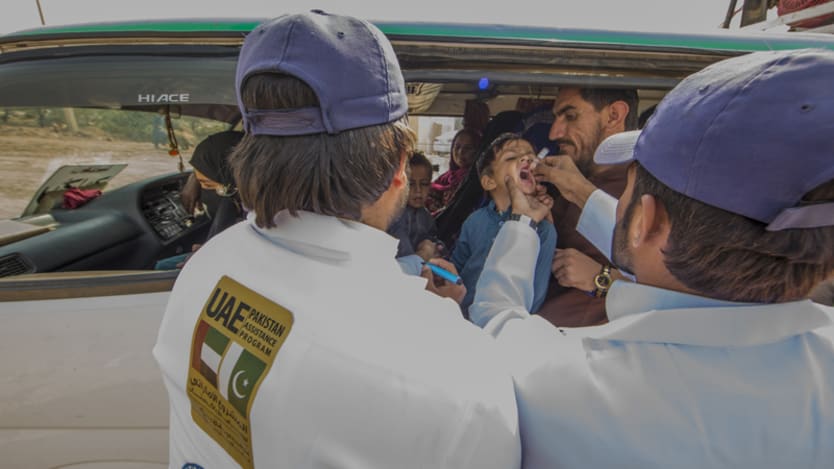
ABU DHABI — The Bill & Melinda Gates Foundation sees China and the Gulf as among the most promising regions to develop future partnerships on global health and development, chief strategy officer Mark Suzman told Devex.
His comments come as the Gates Foundation and Abu Dhabi Crown Prince Sheikh Mohammed bin Zayed Al Nahyan announced a new $100 million Last Mile Fund to push for the elimination of river blindness and lymphatic filariasis — an arrangement Suzman called a “good case study model” for the future of partnership.
Although the foundation will continue to push for Western and other traditional donors to maintain and even increase their funding, it views the future of development funding as being led primarily by developing countries themselves, Suzman said.
“We’re certainly not giving up on traditional donors and will continue every effort we can to keep them on board, and in fact increase resources,” he told Devex. “But in terms of a model, and the whole spirit of where we see development and global health going in the 21st Century, it really is led by developing countries themselves making the commitments. We are attracting in new actors, in smart innovative ways, of which we think this fund is a good case study model.”
As countries with significant wealth and rising global political capital, the UAE, fellow Gulf countries, and China could play a pivotal role in development funding going forward, he said.
“The largest pools of global financial resources that are engaging in the developing world, [where] we think the scope for significant expansion and higher impact investment [is greatest] would be the Gulf on one hand and China on the other,” he said.
The Abu Dhabi partnership will see Crown Prince Mohammed bin Zayed Al Nahyan give $20 million and the Gates Foundation up to $20 million to the Last Mile Fund. The 10-year financing mechanism aims to curb or eliminate the two diseases in several African and Middle Eastern countries.
In addition to work with Abu Dhabi, the Gates Foundation has launched a number of partnerships with China, including with its Ministries of Commerce and Agriculture, both of which are active in development finance.
A recent $200 million joint initiative between the Foundation and the China-Africa Development Fund will focus on trying to boost the impact of Chinese investments in Africa, directing them toward sectors where they can touch the most poverty. The CADF was set up to encourage and assist Chinese companies operating on the continent, where they have traditionally worked in sectors such as infrastructure development.
The new Gates partnership hopes to point investors toward new sectors. “We think there is significant potential in areas like health and agriculture, which have the highest impact on the poorest in those countries,” Suzman said. “Our hope now is with this new fund, we will be able to provide model investments that are win win, bringing in particular Chinese expertise and know how … [toward] high impact investments in Africa that have a transformative effect.”
Together, the initiatives serve as “a model of can we help use the Gates Foundation partnership to target development impact, from actors like the UAE or China, who have not traditionally worked in this role,” he added.
Read more Devex coverage on global health.








